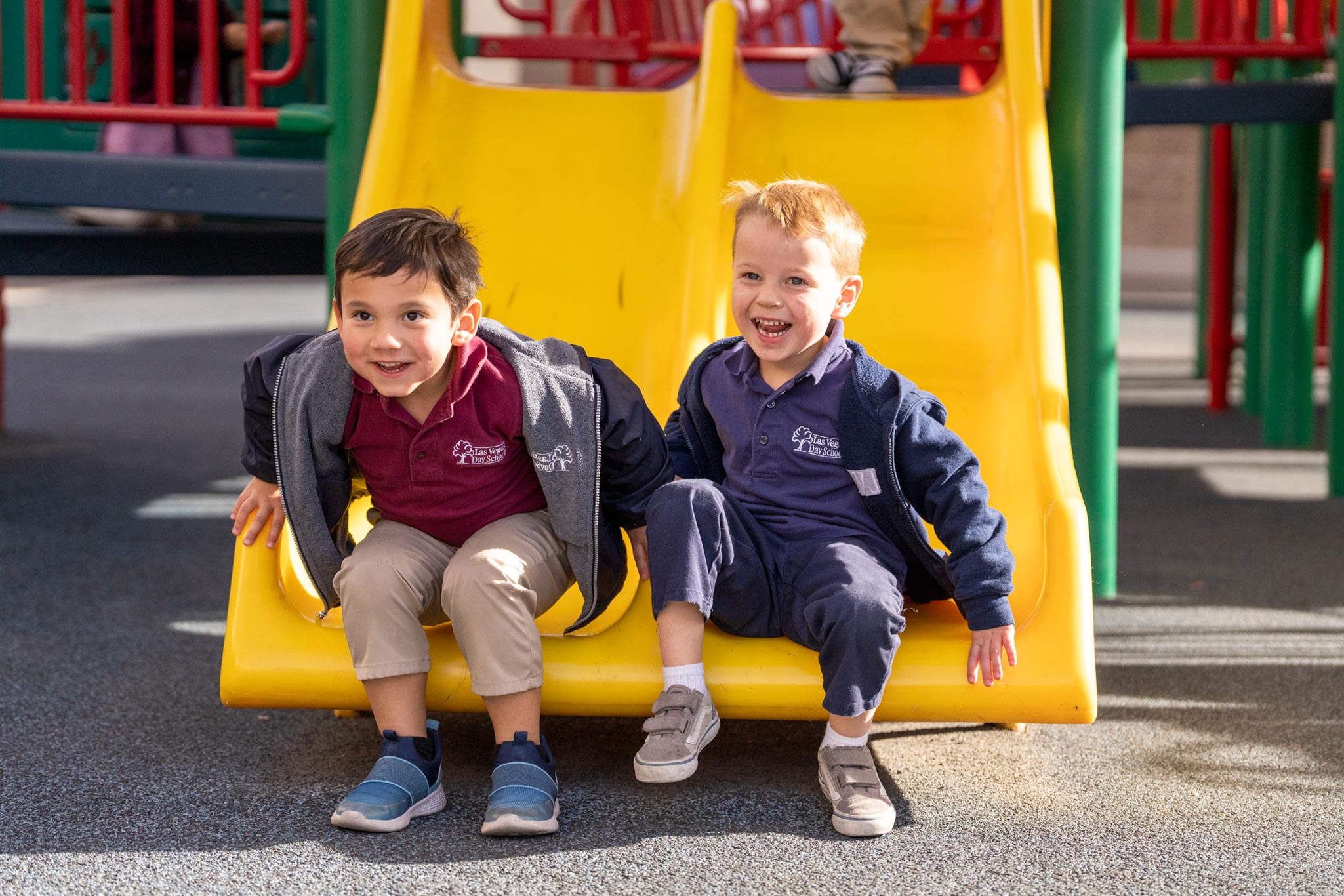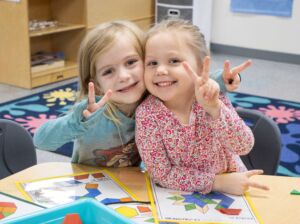Fun Kindergarten activities that encourage creativity and exploration
Wiki Article
All Concerning Elementary School: Vital Truths and Improving Experiences for Youthful Learners
Elementary school plays a crucial role fit young learners' futures. It incorporates essential academic topics and supports social skills through structured interactions. Furthermore, after-school activities offer possibilities for creative thinking and teamwork. Adult participation even more boosts this foundation, sustaining children in their scholastic journeys. As these elements link, they develop an extensive academic experience. Nevertheless, what details techniques can moms and dads and teachers employ to maximize this growth?
Understanding the Quality Institution Educational Program
As trainees start their elementary school journey, they come across a curriculum developed to develop foundational skills and knowledge across numerous subjects. This curriculum commonly incorporates core areas such as mathematics, language arts, science, and social researches. Each subject is structured to cultivate vital thinking, imagination, and analytical capabilities, crucial for future academic success.Language arts concentrate on analysis, creating, and communication abilities, promoting pupils' capacity to express themselves plainly. Mathematics introduces standard ideas, including addition, subtraction, and later on, multiplication and department, preparing for extra intricate problem-solving. Scientific research encourages query and exploration, sparking interest regarding the all-natural world, while social research studies instills an understanding of neighborhood and multiculturalism.
In enhancement to core topics, the curriculum frequently includes arts and athletics, providing a well-rounded instructional experience that advertises both intellectual and physical advancement. Quality institution serves as an important system for lifelong understanding.
The Framework of Elementary School Education
While grade institution education and learning varies by area and organization, it generally complies with an organized framework that advertises modern learning. Generally, quality institution includes a series of qualities, often from kindergarten via 5th or sixth quality, depending on the educational system. Each quality level matches to particular developmental landmarks, with educational program created to build on anticipation.Courses are generally arranged into core subjects, including maths, language arts, scientific research, and social research studies, guaranteeing that pupils get a well-rounded education. Direction usually combines straight teaching with hands-on activities, promoting interaction and critical reasoning.

Assessment techniques vary but typically consist of projects, tests, and quizzes to examine trainee understanding. In addition, teachers usually work together to develop interdisciplinary devices, boosting the learning experience. In general, the structure of elementary school education aims to cultivate fundamental skills, prepare trainees for future academic challenges, and advertise a love for finding out that prolongs past the classroom.
Social Skills Development in Early Learners
Grade school education and learning not only focuses on scholastic skills yet also plays a considerable function in the development of social abilities amongst very early learners. During these formative years, kids participate in various activities that encourage interaction, collaboration, and interaction with peers. Team projects and cooperative understanding settings offer opportunities for kids to practice sharing, working out, and settling conflicts.Furthermore, organized play cultivates important abilities like empathy and understanding, as children learn to acknowledge and respond to the sensations of others. Via directed social interactions, teachers help trainees develop vital paying attention and conversational abilities. As children browse relationships and group characteristics, they acquire confidence in their social capabilities.
The Duty of Extracurricular Tasks
After-school activities play a significant role in improving the academic experience of elementary school pupils by providing methods for personal growth past the class. These activities allow trainees to discover passions and abilities, cultivating imagination and about his self-expression. Participation in sports, songs, art, and clubs grows teamwork, leadership skills, and a sense of belonging.Engaging in such activities promotes physical health and health, urging students to maintain an energetic way of life. Extracurricular programs also act as a platform for trainees to construct friendships and create social abilities, which are crucial for their total advancement
As pupils navigate their rate of interests outside of academics, they gain beneficial experiences that contribute to their self-confidence and resilience. Eventually, these tasks play a crucial duty fit well-shaped individuals, preparing them for future difficulties both in and out of the class.
Supporting Knowing Via Adult Participation
Parental participation greatly improves the instructional journey of elementary school students, as it promotes a supportive environment that strengthens knowing. Engaged moms and dads add to their children's academic success by participating in school events, aiding with homework, and keeping open communication with teachers. Private School. This involvement not just increases students' inspiration yet additionally cultivates a feeling of belonging and self-esteemStudy suggests that children whose parents are proactively involved often tend to have higher qualities, much better presence, and boosted behavior in college. Additionally, parental engagement encourages the advancement of crucial life abilities, such as time monitoring and duty.
Institutions can facilitate this participation by holding workshops, providing sources, and encouraging routine comments. By developing collaborations in between instructors and parents, elementary school can ensure an extensive approach to student growth. Eventually, adult involvement functions as a foundation for promoting a favorable academic experience, profiting both pupils and the college community as a whole.
Frequently Asked Inquiries
What Are the Normal Grade School Hours for Students?
Typical grade school hours for pupils normally range from 8:00 AM to 3:00 PM, differing by area. Numerous colleges integrate a lunch break and recess, making sure trainees have time to charge throughout the day.find more
Exactly How Do Quality Schools Address Diverse Knowing Requirements?
Elementary school resolve varied learning demands via differentiated instruction, tailored lesson plans, and assistance solutions, making certain all students obtain suitable sources. Educators work together with experts to develop inclusive environments that foster specific development and involvement.What Is the Role of Modern Technology in Quality School Education?
Innovation in quality college education and learning enhances discovering with interactive tools, personalized discovering experiences, and accessibility to substantial sources. It promotes cooperation amongst educators and students, preparing kids for a technology-driven future while sustaining varied instructional needs.Just How Can Moms And Dads Assist With Homework Effectively?
Parents can aid with research properly by creating an organized setting, encouraging independence, offering resources, view website and supplying support without straight offering responses. Interaction with instructors also enhances understanding of assumptions and promotes scholastic success.What Are Common Obstacles Encountered by Quality School Trainees?
Common challenges faced by grade institution trainees consist of problem with time monitoring, understanding complicated principles, keeping focus during lessons, navigating social characteristics, and balancing scholastic duties with after-school activities, every one of which can impact their general performance.As trainees commence their grade institution journey, they experience a curriculum developed to build fundamental abilities and knowledge across various subjects. Typically, quality college includes an array of grades, usually from preschool via 5th or sixth quality, depending on the academic system. Extracurricular tasks play a substantial duty in boosting the academic experience of quality institution trainees by offering opportunities for individual development beyond the class. Adult involvement substantially boosts the educational journey of quality institution students, as it fosters an encouraging setting that enhances discovering. By developing partnerships between teachers and moms and dads, quality schools can guarantee a complete method to pupil growth.
Report this wiki page